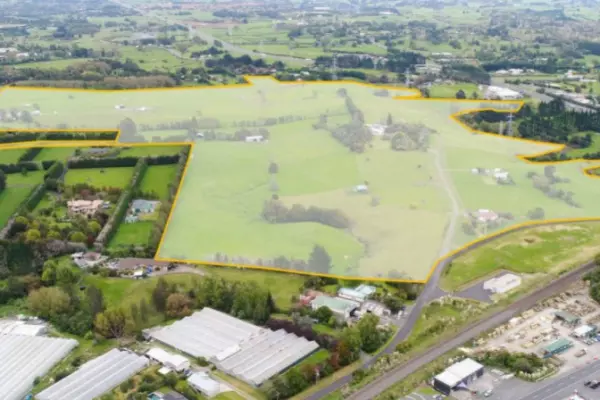New Zealand's system of consenting construction of new houses and its housing planning are fundamentally broken, according to Master Builders' Association chief executive David Kelly.
He has been in his current role for six years and before that worked for the Ministry of Business, Innovation and Employment heading its Canterbury recovery programme and prior to this he was deputy chief executive at an MBIE forerunner, the Department of Building and Housing.
"Consenting has been the bane of my life for all of that period," Kelly told journalists at a breakfast briefing.
"The system is broken. We have to change the whole system," he said.
But "pointing the finger" at individual councils isn't the answer because the process isn't something any individual council can fix.
The association wants to work with the government to find solutions, particularly to delays in the consenting process.
For example, if a property doesn't have a certificate of council compliance, the bank won't release the final payment to the customer, so the customer won't pay the builder, so the builder won't let the customer into their new home.
If that customer is renting, that delay might cost them $1,000 but across 30,000 homes that adds up to $30 million, Kelly said.
Big money
"You get into big money really, really quickly. It's not just numbers, that's real money for consumers and builders."
If a builder could take two weeks off the build time, that could improve productivity by 15%.
Kelly would like to see the government tackle the industry's boom-to-bust cycle and to plan for the next bust now before it happens.
Many of the industry problems stem from that cycle – for example, when the Global Financial Crisis hit, the number of homes being built halved, apprentices were laid off and many experienced workers left the industry or went overseas.
MBA chair Peter Neven said it took the industry seven years to recover from the GFC, "some would say longer".
Vice-president Johnny Calley said it took about seven years to rebuild the labour force from the planning stage including architects and project managers.
The MBA represents about 70% of the volume of home building and all the major players in the vertical construction market.
Kelly said his organisation is picky about who it allows in as members and turns down about half the applications it gets each year because those people don't meet its quality standards.
The residential construction market is very much driven by consumers, builders usually build to order and the country doesn't have many spec builders.
Not the magic answer
The government's housing package announced last week included $2 billion to Kāinga Ora, formerly Housing NZ, to boost strategic land purchases.
Neven said Kāinga Ora will play a part in stabilising the industry, "but it's never going to solve it".
He was referring to the current housing crisis which has seen house prices soar 21.5% in the year ended February while estimates of how many houses NZ is short range from 40,000-to-80,000.
The association estimates government and local council building combined accounts for only about 5% of the housing market, although they're currently building at a little above their market share.
Kelly said part of the problem is that the NZ government doesn't have good housing policy and hasn't since the 1970s.
Seven years was a theme the association officials kept returning to – Neven, for example, said it usually takes about seven years between a developer buying land and building houses on it.
Calley cited the example of two stalled projects in his home town of Tauranga, the Te Tumu project near Papamoa and Tauriko West – while Te Tumu is being held up by water issues, the Tauriko West project needs roading and other infrastructure but the NZ Transport Agency has other priorities.
Neven said these projects would require government intervention to fast-track them but he doesn't expect that will happen.
As Kelly said, "everyone's got competing priorities and infrastructure is part of it. There was a good signal the other day, but how's it going to work?" referring to the government's housing package.
Boost in funding
That included a $3.8b fund to boost housing supply and infrastructure, increased grants for first-home buyers and a number of measures to deter property investors including doubling the bright-line test to 10 years and removing interest costs as allowable expenses for income tax purposes.
Most observers regard the latter measure, which removes deductibility immediately for new investments and phases deductibility out for existing landlords over a four-year period, as the most significant.
Kelly said he'd talked to one volume builder who builds about 500 homes a year who was very pleased to hear the government was exempting new builds from the extended brightline test and likely from the changes to the interest deductibility rules.
"They thought it was a positive that they retained tax deductibility for new builds," he said.
Another volume builder who builds about 450 homes a year told him that 25% of recent buyers were investors and that only one of them had bought more than one house, Kelly said.
Most property investors own only a single house, the association officials said.
That’s in contrast to the picture the government painted of investors being "speculators" who were exploiting a tax "loophole" – every other business in NZ retains the right to deduct interest costs against income for tax purposes.














